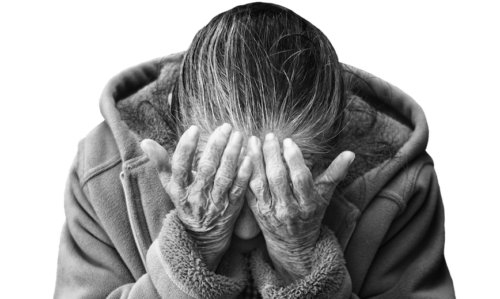
Staff at a Canberra women’s charity recently tried to better understand their clients’ needs by spending a week trying to live on $80, same as the NewStart allowance. It was a hard lesson to live.
STAFF at the ACT women’s charity Toora Women recently decided to shine a personal light on the significant financial hardship that people surviving on the Federal government’s controversial NewStart allowance have to endure.
During last month’s Anti Poverty Week, a third of Toora’s staff volunteered to simulate their clients’ experience of surviving on the allowance.
On NewStart, the average single woman’s disposable income is $80 after receiving government subsidies and paying their rent and other utilities to Toora. This amount increases to $115 if they have children in their care.
“This is the amount that our clients would have to purchase their food and drink for the week as well as toiletries, clothing, transport, medication, other healthcare needs, and emergencies,” says Toora’s executive director Susan Clarke-Lindfield.
“Our staff reported how difficult it was and we can only imagine the long-term and chronic psychological and other health effects this has on our clients.
“We know from ACOSS data that more than 13.2 per cent of Australians are living below the poverty line. It is genuinely hard to live on NewStart as it hasn’t increased in real terms for 25 years or kept pace with the costs of living.”
Toora offers specialist services to women who have experienced trauma due to homelessness, their own or others’ addictions, domestic and family violence, and the corrections systems. In the last financial year, it supported about 501 women and 156 children in the ACT.
How did staff member Karina Lockwood go on $80?
“The days I was at work were the easiest, in the sense that I was busy so didn’t need to spend money.
The hardest thing on these days was making sure I was well organised. One day I was running late and forgot my lunch. I was working in the city and knew it would cost a lot to buy lunch, so I walked to a service station to buy a cheap sandwich.
The days I wasn’t at work (which best represents those in receipt of NewStart allowance) were the most challenging.
One of the days I was supporting a friend at court where you can be sitting around waiting long after your appointment time. Therefore, I’d normally pay for the four-hour maximum parking, but I realised I couldn’t afford the parking fee. So I drove the short distance to my suburb’s free park and ride (I was too anxious to rely on the buses as they aren’t frequent) and caught the light rail into the city.
We sat for 2½ hours to be seen at court, during which we decided to have a coffee. I would normally buy one for my friend, who is on Centrelink benefits and has little money.
However, I had to tell her I couldn’t afford to today (she was understanding). I’d normally buy decaf, but I didn’t, to save the 50c extra.
I had arrived in Civic at 9.30am, we didn’t come out of court until 1.15pm. I hadn’t eaten since 7.30am, it was 26 degrees and I was hot and tired, but I had to walk to get the light rail. I didn’t get home and eat until 2.30pm, I was exhausted.
My challenges and feelings this week were:
- A friend wanted to catch up for brunch, but I didn’t have the money to do this, leaving me feeling low
- I needed to go to the doctor about an ongoing sinus issue. I have a bulk-billing GP for most issues, but for this I wanted to see my private-billing GP. This made me feel extremely anxious because I couldn’t afford to see her.
- Public transport takes so much longer than using a car; I felt anxious relying on public transport for an important appointment and it took me an hour the previous night looking at all the best ways to get to the city, which increased my stress levels and affected my sleep.
- Even when I thought I was doing well with my spending, when I sat and worked it out on day four, I was shocked at how much I had spent and how little I had left for the rest of the week. I realised at this point, using eftpos was not a good way to keep track of my spending and I should have drawn the available cash out.
- I had to constantly think about everything I did and the costings of everything, which was extremely stressful.
- I felt guilty when I bought a coffee.
- If this would be an ongoing thing for me, I can imagine I would start to feel quite low and defeated, which I believe would impede on my mental health.
I know I am privileged to be working and be able to afford to go out with friends and pay for parking when I want, but life isn’t this simple for many who have a lot of barriers preventing them from working.
I have always been very motivated and ambitious and have worked since my teenage years, but I also faced barriers myself when my children were very young that prevented me from working and I spent a couple of years on government benefits.
During this time, I felt ashamed, I was never able to save money, I spent my days living day-to-day, I got in debt, it affected my mental health and so many areas of my life.
I found trying to live on $80 for the week extremely challenging and despite my best efforts, I did end up spending over my budget.”
Who can be trusted?
In a world of spin and confusion, there’s never been a more important time to support independent journalism in Canberra.
If you trust our work online and want to enforce the power of independent voices, I invite you to make a small contribution.
Every dollar of support is invested back into our journalism to help keep citynews.com.au strong and free.
Thank you,
Ian Meikle, editor





Leave a Reply